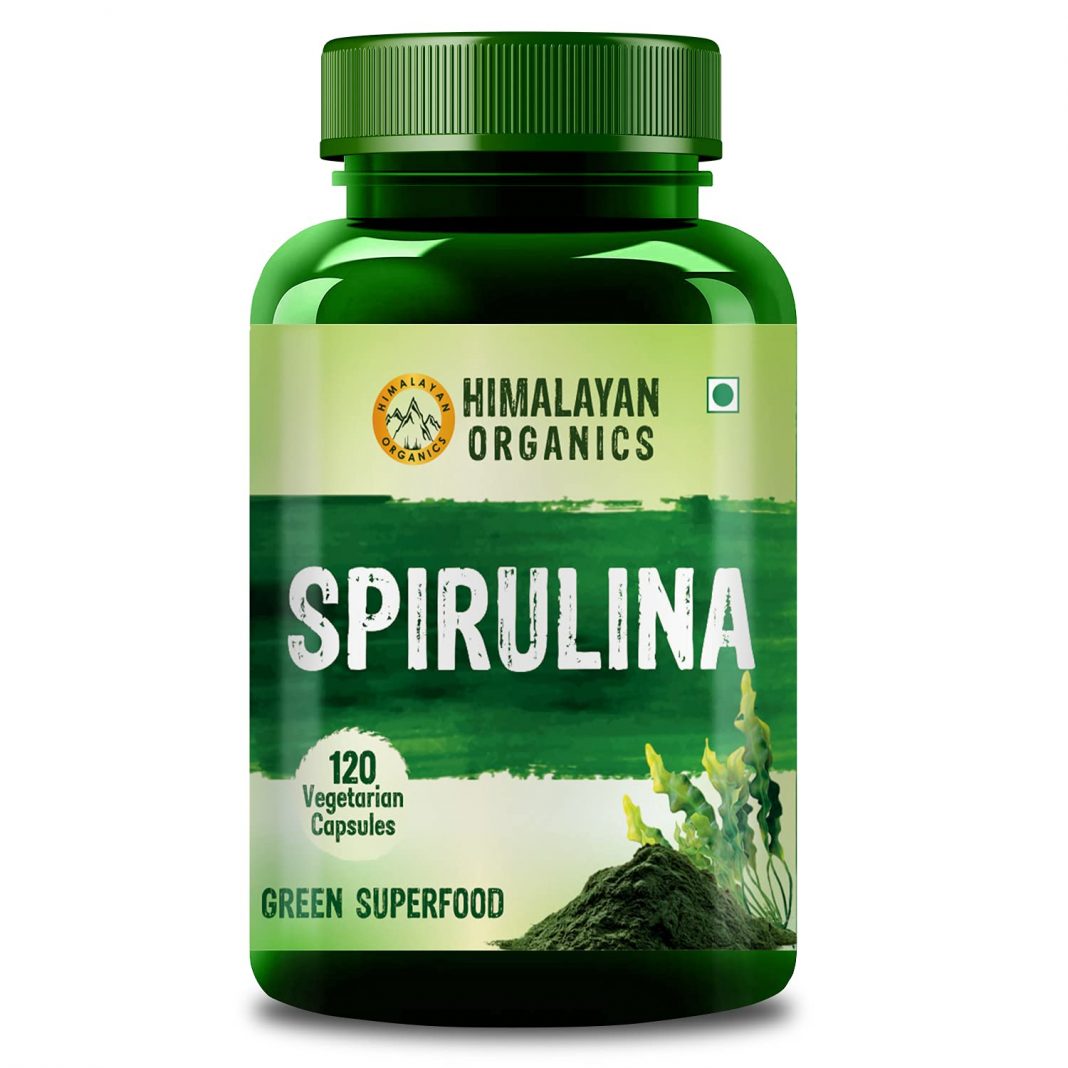Spirulina is a type of algae associated with many health benefits, thanks to its nutrient profile and powerful antioxidant properties.
Spirulina is among the world’s most popular supplements.
It is loaded with various nutrients and antioxidants that may benefit your body and brain.
Spirulina is an organism that grows in both fresh and salt water (1Trusted Source).
It is a type of cyanobacteria, which is a family of single-celled microbes that are often referred to as blue-green algae (2Trusted Source).
Just like plants, cyanobacteria can produce energy from sunlight via a process called photosynthesis.
Spirulina was consumed by the ancient Aztecs but became popular again when NASA proposed that it could be grown in space for use by astronauts (3Trusted Source, 4Trusted Source).
A standard daily dose of spirulina is 1–3 grams (g), but doses of up to 10 g per day have been used effectively (1Trusted Source).
This tiny alga is packed with nutrients. A single tablespoon (tbsp.), or 7 g, of dried spirulina powder contains (5Trusted Source):
- Protein: 4 g
- Thiamin: 14% of the Daily Value (DV)
- Riboflavin: 20% of the DV
- Niacin: 6% of the DV
- Copper: 47% of the DV
- Iron: 11% of the DV
It also contains decent amounts of magnesium, potassium, and manganese.
In addition, the same amount contains only 20 calories and less than 2 g of carbohydrates.
Spirulina also provides a small amount of fat — around 1 g per tbsp. (7 g) — including both omega-6 and omega-3 fatty acids in an approximately 1.5–1.0 ratio.
Plus, the quality of the protein in spirulina is considered excellent and provides all of the essential amino acids that your body needs (1Trusted Source).
Note that it is often claimed that spirulina contains vitamin B12, but this is false. It has pseudovitamin B12, which has not been shown to be effective in humans (6).
summarySpirulina is a type of blue-green algae that grows in both salt and fresh water. It is highly nutritious and a great source of protein, copper, and B vitamins.
Oxidative damage can harm your cells and can drive chronic inflammation, which contributes to cancer and other diseases (7Trusted Source).
Spirulina is a fantastic source of antioxidants, which can protect against oxidative damage (8Trusted Source).
Its main active component is called phycocyanin, which is an antioxidant that also gives spirulina its unique blue-green color (9Trusted Source).
Phycocyanin can fight free radicals and block the production of molecules that promote inflammation, providing impressive antioxidant and anti-inflammatory effects (10Trusted Source).
summaryPhycocyanin is the main active compound in spirulina. It has powerful antioxidant and anti-inflammatory properties.
Heart disease is the world’s leading cause of death (11Trusted Source).
Many risk factors are linked to an increased risk of heart disease.
As it turns out, spirulina positively impacts many of these factors. For example, it can lower total cholesterol, LDL (bad) cholesterol, and triglycerides, while also increasing HDL (good) cholesterol (12Trusted Source).
According to one review, spirulina was able to significantly improve these markers in people with metabolic syndrome and related disorders (13Trusted Source).
Another 2014 study in people with high cholesterol determined that 1 g of spirulina per day lowered triglycerides by 16.3% and decreased LDL cholesterol by 10.1% (14Trusted Source).
summaryStudies indicate that spirulina can lower triglycerides and improve cholesterol levels, which may support heart health.
Fatty structures in your body are susceptible to oxidative damage. This is known as lipid peroxidation, a key driver of many serious diseases (15Trusted Source).
For example, one of the key steps in the development of heart disease is the oxidation of LDL cholesterol (16Trusted Source).
Interestingly, several studies have found that the antioxidants in spirulina may be particularly effective at reducing lipid peroxidation (17Trusted Source, 18Trusted Source).
In fact, one small study showed that spirulina supplementation was able to reduce exercise-induced lipid peroxidation, inflammation, and muscle damage in 17 rugby players (18Trusted Source).
summaryFatty structures in your body can become oxidized, driving the progression of many diseases. Some research suggests that the antioxidants in spirulina may help prevent this.
While more studies are needed, some evidence suggests that spirulina has anti-cancer properties.
Research in animals indicates that it can reduce cancer occurrence and tumor size (19Trusted Source, 20Trusted Source).
Spirulina’s effects on oral cancer — or cancer of the mouth — have been particularly well studied.
In fact, several studies have found that spirulina supplementation can be useful for the management of oral submucous fibrosis (OSMF), a type of precancerous lesion in the mouth (21Trusted Source, 22).
In another 2013 study of 40 individuals with OSMF lesions, 1 g of spirulina per day led to greater improvement in OSMF symptoms than pentoxifylline, a medication used to promote blood flow (23Trusted Source).
summarySpirulina may have anti-cancer properties and appears especially effective against certain types of precancerous lesions of the mouth. However, more research is needed.
High blood pressure is a main driver of many serious conditions, including heart attack, stroke, and chronic kidney disease (24Trusted Source).
One review of five studies found that taking 1-8 g of spirulina per day could significantly reduce both systolic and diastolic blood pressure, especially for people with high blood pressure levels (25Trusted Source).
This reduction is thought to be driven by an increased production of nitric oxide, a signaling molecule that helps your blood vessels relax and dilate (26Trusted Source).
summarySpirulina may increase production of nitric oxide and reduce blood pressure levels, a major risk factor for many chronic conditions.
Allergic rhinitis is characterized by inflammation in your nasal passageways.
It is triggered by environmental allergens, such as pollen, animal hair, or even wheat dust (27Trusted Source, 28Trusted Source).
Spirulina is a popular alternative treatment for symptoms of allergic rhinitis, and there is evidence that it can be effective (29).
For instance, one study found that spirulina was more effective than cetirizine, an antihistamine used to treat allergies, for improving symptoms of allergic rhinitis and decreasing inflammation (30Trusted Source).
However, more research is needed.
summarySpirulina supplements may be effective against allergic rhinitis, but more research is needed.
Anemia is a condition characterized by a reduction in hemoglobin or red blood cells in your blood (31Trusted Source).
There are many possible causes of anemia, included nutrient deficiencies, genetic disorders, and chronic inflammation, among others (31Trusted Source).
Anemia is fairly common in older adults, leading to prolonged feelings of weakness and fatigue (32Trusted Source).
In one 2011 study in 40 older people with a history of anemia, spirulina supplements increased the hemoglobin content of red blood cells and improved immune function (33Trusted Source).
Some other studies in animals have also found that spirulina could improve hemoglobin levels and ease symptoms of anemia (34Trusted Source, 35Trusted Source, 36Trusted Source).
However, more high-quality, recent studies in humans are still needed.
summaryOne study suggests that spirulina can reduce anemia in older adults. Some animal studies have also found that spirulina could be beneficial for anemia, but more research is needed.
Exercise-induced oxidative damage is a major contributor to muscle fatigue (37Trusted Source).
Certain plant foods have antioxidant properties that can help athletes and people who are physically active individuals minimize this damage.
Spirulina appears beneficial, as some studies pointed to improved muscle strength and endurance (38Trusted Source).
In one study, spirulina supplementation was able to improve oxygen uptake during an arm cycling exercise, with researchers noting that it could act as ergogenic aid to enhance athletic performance (39Trusted Source).
summarySpirulina may provide multiple exercise benefits, including enhanced endurance and increased muscle strength.
Several animal studies suggest that spirulina could help lower blood sugar levels (40Trusted Source, 41Trusted Source).
There is also some evidence that spirulina can support healthy blood sugar levels in humans.
According to one review of eight studies, spirulina supplementation in doses ranging from 0.8-8 g daily could significantly reduce fasting blood sugar levels in people with type 2 diabetes (42Trusted Source).
However, there was no significant effect on blood sugar levels after eating or levels of hemoglobin A1c, which is used to measure long-term blood sugar control (42Trusted Source).
Therefore, more research is needed.
summarySome evidence suggests that spirulina may benefit people with type 2 diabetes by significantly reducing fasting blood sugar levels. Still, more studies are needed.
Spirulina is a type of cyanobacteria — often referred to as blue-green algae — that is highly nutritious.
Studies show that it may improve cholesterol and triglyceride levels, suppress oxidation, reduce blood pressure, and lower fasting blood sugar levels.
While more research is needed before any strong claims can be made, spirulina may be one of the few superfoods worthy of the title.
If you want to give this supplement a try, it’s widely available in stores and online.



